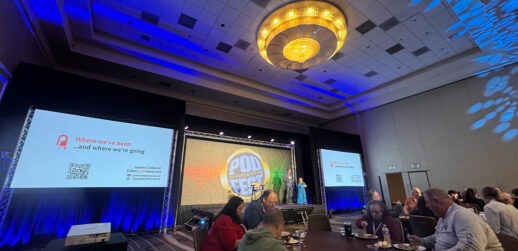According to a new survey, most business travelers are upbeat about work trips. 73 percent of those surveyed were satisfied with their overall business trip experience over the past three months, compared to 71 percent in 2015, according to the Global Business Travel Association‘s Business Traveler Sentiment Index™ Global Report, in partnership with American Express. The Index is a data-centered barometer based on business travelers’ attitudes toward seven key components of business-related travel. It examines how business travelers feel about their travel experience and how those feelings affect their actual behaviors related to travel.
The latest research shows that 77 percent of business travelers say they are able to meet their goals on work trips, and those who feel dissatisfied or neutral about meeting their business goals report the following will help: improved Wi-Fi access (46 percent), clearer objectives (42 percent), more time with clients (40 percent) and a larger budget to extend the trip (37 percent).
When it comes to productivity, just over half (51 percent) of business travelers prefer to spend flights doing something other than work. This is especially true in Japan (61 percent) and Australia (60 percent) and for baby boomers (those ages 55+, 57 percent). Employees who want to work inflight say lack of in-seat power outlets is the biggest hindrance to inflight productivity: 72 percent say too few outlets contribute at least some to their inability to get work done, followed by seat-size (68 percent), tray table size (67 percent) and lack of adequate USB outlets (65 percent).
“Business travel is the industry that drives all others, making it essential that companies equip their travelers with clear objectives and tools for success,” said Michael W. McCormick, GBTA Executive Director and COO. “In an era of consolidation and record profits among travel suppliers, it is also imperative that they reinvest in the customer experience – innovative new products from all travel suppliers can lead to increased productivity for business travelers on the road, helping to drive continued business growth.”
Company Travel Policies Are Evolving
Across the globe, some companies have travel policies that allow employees to use ride-sharing (44 percent) or home-sharing (28 percent) services when they travel for work. However, these services are still so new that more than one in five travelers aren’t sure if the options are covered by their companies’ policies. Companies in some countries are more open to sharing economy options than others, with 79 percent of business travelers in Mexico and 61 percent in the United States able to use ride-sharing services and 42 percent of Hong Kong-based business travelers free to use home-sharing services. Millennials are more likely than business travelers of other age groups to have used ride- or home-sharing services on work trips taken in the previous three months.
In addition, fewer business travelers in 2016 reported being required to follow a company travel policy, 44 percent compared to 52 percent in 2015. A majority of travelers who are required to follow a travel policy or guidelines are satisfied with the ease of understanding travel policies (61 percent), flexibility in planning (60 percent) and changing their itinerary as needed (58 percent).
“Flexibility continues to be a major priority for business travelers—whether it’s the flexibility to choose which business technology will best serve their needs on the road or the travel itinerary that will best meet their business objectives,” said Susan Chapman-Hughes, Senior Vice President, American Express Global Commercial Payments. “Companies should consider how their policies can strike the right balance of providing guidelines for employees while empowering them with an appropriate level of flexibility.”
Social Media Keeps More Travelers Connected on the Road
Compared to last year, more employees say using social media helps their ability to connect with work contacts, colleagues and friends when on the road, with millennials leading the way. During work trips, 61 percent of millennials and 50 percent of all business travelers use social networks such as Facebook, LinkedIn, Twitter, Xing or Mixi once or more per day for work-related purposes.
An increase in business travelers’ adoption of social media helped boost the Social Media Experience component scores in 2016 over 2015 for a majority of the countries surveyed, including Australia, Germany, Mexico and the United States.
When it comes to mobile devices, in general, 72 percent of millennials and 64 percent of all business travelers use mobile devices to check travel itineraries one or more times a day during trips, and 55 percent of millennials and 44 percent of all business travelers use them to check their expenses at least once a day while on the road.




